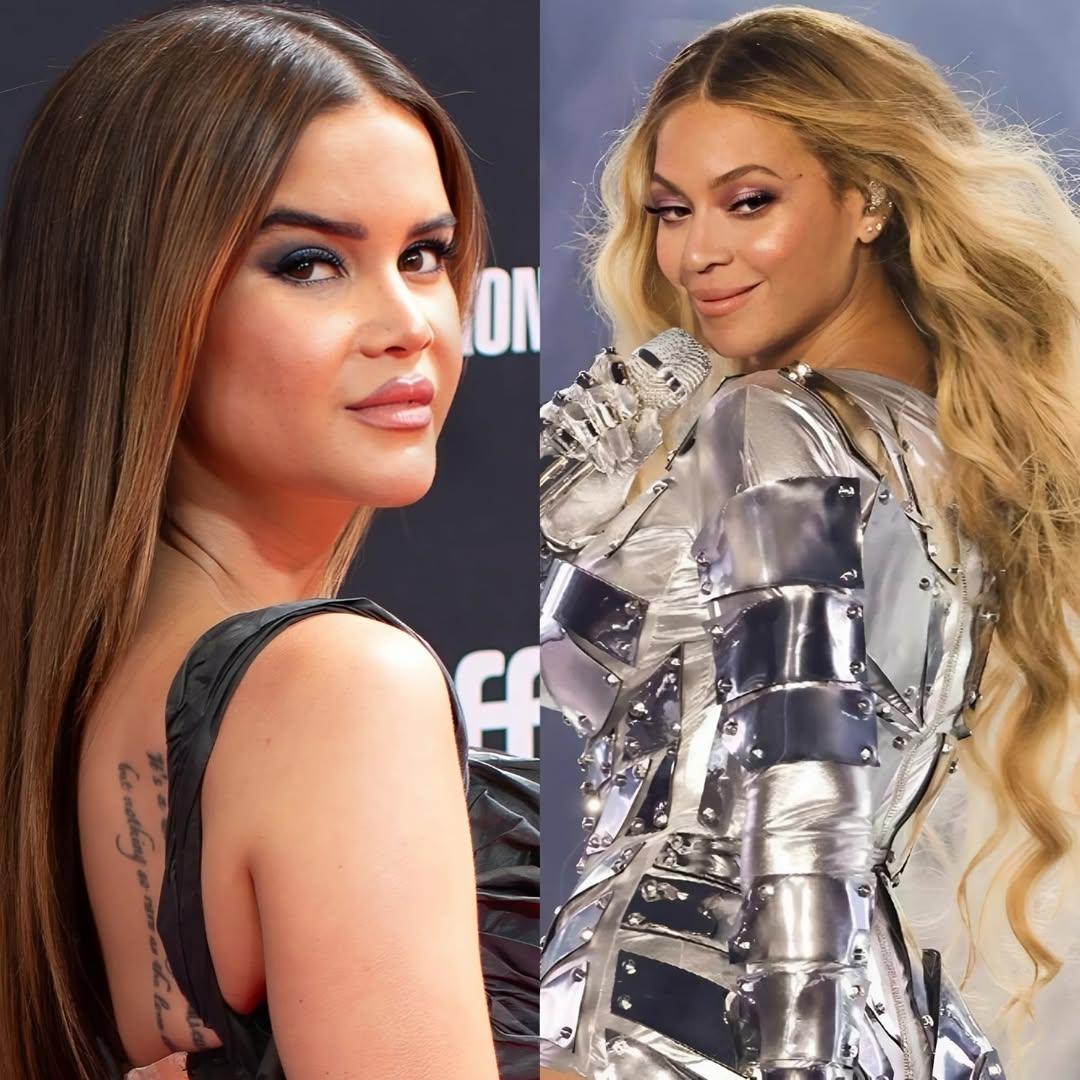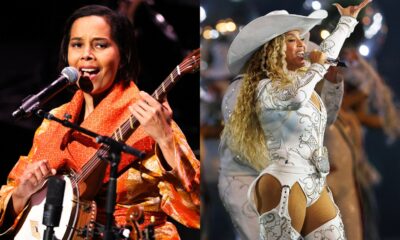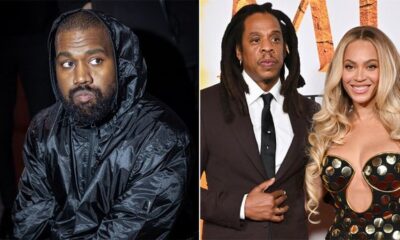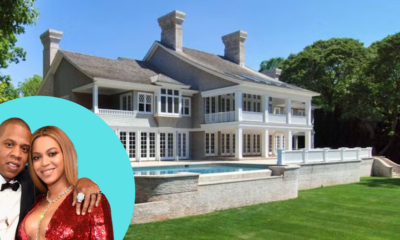CELEBRITY
Breaking: Beyoncé is “Rebuilding Country Music for Black People,” According to Maren Morris. Is There a Secret Conspiracy Behind Her Plan to Upend the Music Industry?

**Breaking: Beyoncé is “Rebuilding Country Music for Black People,” According to Maren Morris. Is There a Secret Conspiracy Behind Her Plan to Upend the Music Industry?**
In a bold statement that has sent shockwaves through both the country and pop music worlds, country singer Maren Morris recently claimed that Beyoncé is “rebuilding country music for Black people.” This provocative assertion has ignited a passionate debate across the music industry. While some view it as a call for inclusivity and empowerment, others question whether Beyoncé’s intentions may be part of a larger, secretive plan to upend the entire music industry.
But what exactly does Morris mean by “rebuilding country music”? Is there more to this statement than meets the eye, and is there a deeper conspiracy at play?
### The Origin of the Statement
Maren Morris, known for her hits like “My Church” and “The Bones,” made these remarks during an interview with *Rolling Stone*. She was discussing Beyoncé’s groundbreaking 2016 album, *Lemonade*, which featured the single “Daddy Lessons.” This song, with its unmistakable country influences, was praised by many for bridging the gap between genres like country, pop, and R&B. Beyoncé, of course, is known for her ability to fuse different musical styles, but “Daddy Lessons” resonated particularly with country music fans because of its storytelling, rhythm, and authenticity—elements that country music prides itself on.
Morris noted that Beyoncé’s involvement in country music was a game-changer, especially for Black artists who have historically been marginalized within the genre. For many, country music has been seen as a space reserved for white musicians, despite its origins deeply rooted in African American culture. From the blues to gospel, Black artists have contributed to the development of country music for generations, but often without recognition.
Maren Morris’s statement about Beyoncé’s role in “rebuilding country music for Black people” underscores the long-standing issue of racial exclusion within the genre. She’s suggesting that Beyoncé’s success in country music can provide a model for Black artists to break into and reshape the space in ways that have not been possible before.
### Beyoncé’s Impact on Country Music
Beyoncé’s *Lemonade* album, particularly the song “Daddy Lessons,” was seen as an unlikely but powerful country infusion. With a southern feel and a message deeply rooted in personal and family storytelling, “Daddy Lessons” could easily have been embraced by mainstream country radio, had the genre been more open to Black voices. Despite this, the song was met with resistance, and Beyoncé was often criticized by certain factions within country music for not being “authentically” country.
However, Beyoncé’s influence on country music goes beyond just one song. Her ability to bring together various genres, combined with her massive platform, has undoubtedly created a ripple effect throughout the industry. With the rise of artists like Kane Brown, Jimmie Allen, and Mickey Guyton, who are all proudly Black and finding success in country music, it’s clear that Beyoncé’s presence and influence helped pave the way for a new wave of diverse voices in the genre.
While some critics argue that Beyoncé’s involvement in country music is part of a larger strategy to dominate and influence mainstream music culture, others view it as an effort to finally challenge the long-standing racial norms of the industry. Beyoncé has always been vocal about issues of racial injustice, and her musical ventures seem to reflect this advocacy.
### Is There a Secret Conspiracy?
While the idea of a “secret conspiracy” may sound far-fetched, there are conspiracy theories that speculate about the power dynamics in the music industry. Some claim that Beyoncé’s entry into country music is part of a calculated effort to upend the power structures within the industry. With her immense global influence and crossover appeal, could Beyoncé be leading a silent revolution to make country music more inclusive and diverse?
On the other hand, there’s no tangible evidence to suggest that Beyoncé is intentionally trying to “rebuild” country music in some secretive, manipulative way. The idea of her orchestrating an entire movement to change the genre is likely more myth than reality. However, her presence in the country music world does seem to have sparked a cultural shift—a shift that is already challenging the narrow definition of what country music is supposed to be.
### The Broader Conversation on Race in Music
At its core, the statement from Maren Morris isn’t about Beyoncé’s individual actions but rather about the ongoing struggle for racial equality in the music industry. For years, Black artists have faced barriers to entry in country music, despite their undeniable contributions to the genre’s development. The lack of Black representation on country radio, the awards circuit, and the Grand Ole Opry stage has long been a point of contention for many, and Beyoncé’s move into the genre is merely a part of a larger conversation about race and inclusion in all forms of popular music.
The growing success of Black artists in country music—alongside Beyoncé’s trailblazing efforts—signals that the genre is slowly but surely becoming more inclusive. In this light, Beyoncé’s involvement can be viewed not as a conspiracy, but as part of an organic shift toward diversity in mainstream country music.
### Conclusion: A New Era for Country Music?
Beyoncé’s role in “rebuilding country music for Black people,” as described by Maren Morris, seems to be both a reflection of and a catalyst for broader cultural change. Whether or not there’s a secret plan behind it, the impact is undeniable: Beyoncé’s influence is encouraging new artists and giving rise to a more inclusive country music landscape. The music industry as a whole may be seeing a slow but necessary transformation that will continue to empower artists of all races and backgrounds to thrive in every genre.
While the term “conspiracy” may be an exaggeration, there’s no question that Beyoncé’s ability to transcend genre boundaries is challenging long-held norms and perceptions, helping to dismantle the walls that have kept country music (and other genres) predominantly white for so long. The real question may not be whether there’s a conspiracy but whether the industry itself is ready to accept this much-needed evolution.














